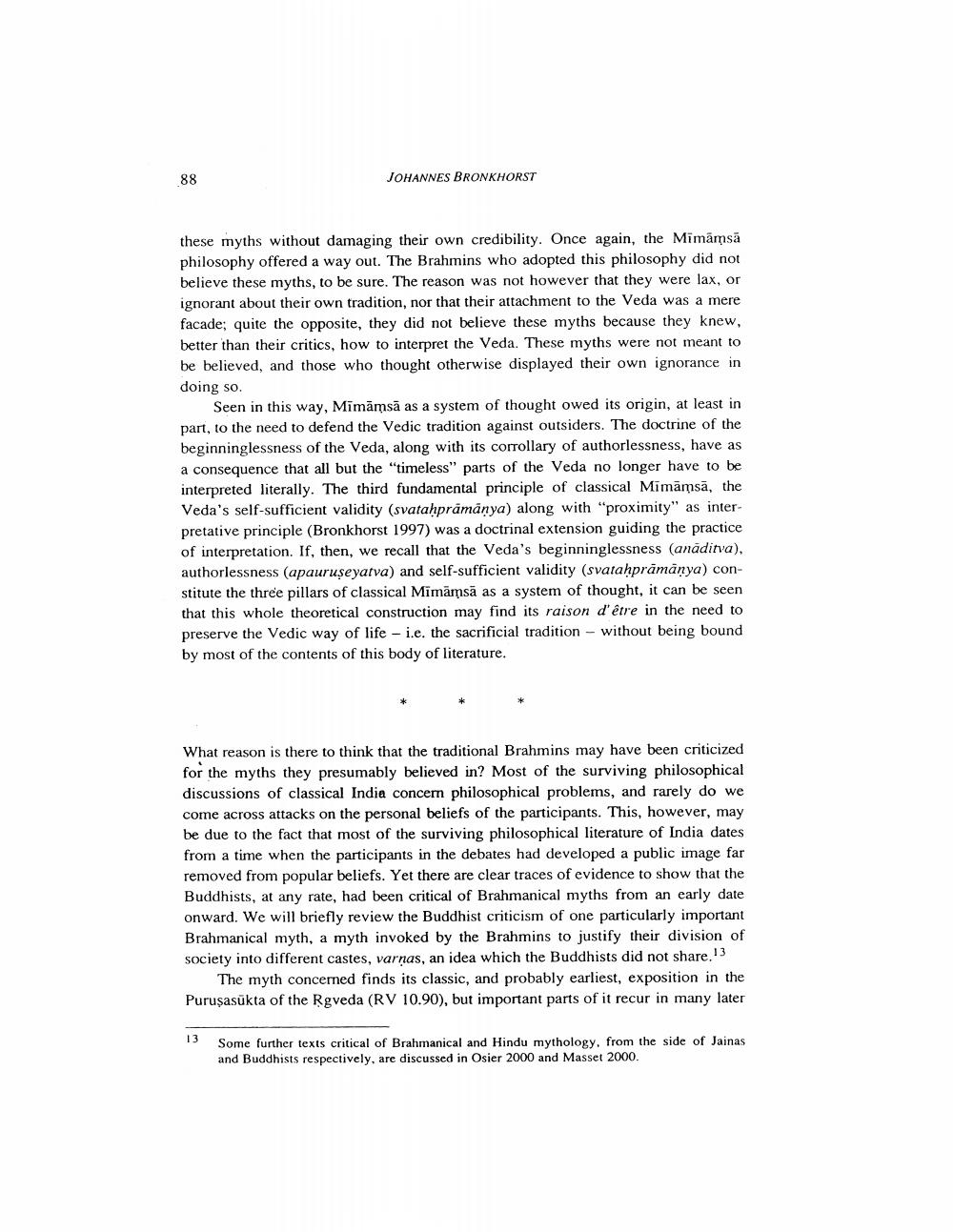Book Title: Origin Of Mimamsa As A School Of Thought A Hypothesis Author(s): Johannes Bronkhorst Publisher: Johannes Bronkhorst View full book textPage 6
________________ JOHANNES BRONKHORST these myths without damaging their own credibility. Once again, the Mimämsä philosophy offered a way out. The Brahmins who adopted this philosophy did not believe these myths, to be sure. The reason was not however that they were lax, or ignorant about their own tradition, nor that their attachment to the Veda was a mere facade; quite the opposite, they did not believe these myths because they knew, better than their critics, how to interpret the Veda. These myths were not meant to be believed, and those who thought otherwise displayed their own ignorance in doing so. Seen in this way, Mimāmsā as a system of thought owed its origin, at least in part, to the need to defend the Vedic tradition against outsiders. The doctrine of the beginninglessness of the Veda, along with its corrollary of authorlessness, have as a consequence that all but the timeless" parts of the Veda no longer have to be interpreted literally. The third fundamental principle of classical Mimāmsā, the Veda's self-sufficient validity (svatahpramanya) along with "proximity" as interpretative principle (Bronkhorst 1997) was a doctrinal extension guiding the practice of interpretation. If, then, we recall that the Veda's beginninglessness (anāditva), authorlessness (apauruşeyatva) and self-sufficient validity (svatahpramanya) constitute the three pillars of classical Mimamsā as a system of thought, it can be seen that this whole theoretical construction may find its raison d'être in the need to preserve the Vedic way of life - i.e. the sacrificial tradition - without being bound by most of the contents of this body of literature. What reason is there to think that the traditional Brahmins may have been criticized for the myths they presumably believed in? Most of the surviving philosophical discussions of classical India concern philosophical problems, and rarely do we come across attacks on the personal beliefs of the participants. This, however, may be due to the fact that most of the surviving philosophical literature of India dates from a time when the participants in the debates had developed a public image far removed from popular beliefs. Yet there are clear traces of evidence to show that the Buddhists, at any rate, had been critical of Brahmanical myths from an early date onward. We will briefly review the Buddhist criticism of one particularly important Brahmanical myth, a myth invoked by the Brahmins to justify their division of society into different castes, varnas, an idea which the Buddhists did not share.13 The myth concerned finds its classic, and probably earliest, exposition in the Purusasūkta of the Rgveda (RV 10.90), but important parts of it recur in many later 13 Some further texts critical of Brahmanical and Hindu mythology, from the side of Jainas and Buddhists respectively, are discussed in Osier 2000 and Masset 2000.Page Navigation
1 ... 4 5 6 7 8 9 10 11 12 13 14 15 16 17 18 19 20 21
